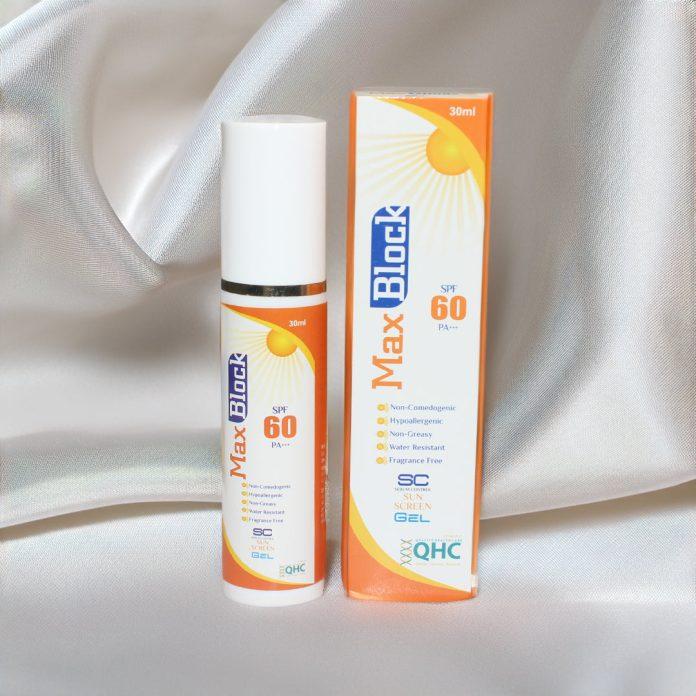Introduction to sunblock
Sunblock is essential for protecting your skin from the harmful effects of the sun. In Pakistan, where the sun can be harsh using the right sunblock is crucial. This article will guide you through everything you need to know about choosing the best sunblock in Pakistan. We’ll cover why sunblock is important how to choose the right one and tips for applying it effectively.
Why Sunblock is Essential
Sunblock plays a vital role in shielding your skin from the sun’s harmful UV rays. These rays can cause sunburn premature aging, and even skin cancer. By applying sunblock, you create a protective barrier that helps prevent these damaging effects. It’s not just for sunny days; UV rays can penetrate clouds making sunblock necessary year-round.
Understanding SPF
SPF, or Sun Protection Factor, is a key element to consider when choosing sunblock. It indicates how well the sunblock will protect your skin from UVB rays, which are responsible for sunburn. In Pakistan where the sun is strong an SPF of at least 30 is recommended for daily use. For extended outdoor activities higher SPF levels may be needed.
Types of Sunblock
There are different types of sunblock available in the market, each catering to various needs and preferences.
- Chemical Sunblock: This type absorbs UV rays and converts them into heat, which is then released from the skin. It is lightweight and easy to apply but may not be suitable for sensitive skin.
- Physical Sunblock: Also known as mineral sunblock, this type creates a physical barrier on the skin to reflect UV rays. It is often recommended for sensitive skin as it is less likely to cause irritation.
- Tinted Sunblock: This is a combination of sunblock and makeup. It provides sun protection while also giving your skin a natural tint, making it a convenient option for daily use.
How to Choose the Best Sunblock for Your Skin Type
Choosing the right sunblock depends on your skin type. Here are some tips to help you make the best choice:
- For Oily Skin: Look for a sunblock that is oil-free and non-comedogenic, meaning it won’t clog your pores. Gel-based sunblocks are often a good option for oily skin.
- For Dry Skin: Opt for a moisturizing sunblock that contains hydrating ingredients like hyaluronic acid. Cream-based sunblocks can provide the necessary moisture for dry skin.
- For Sensitive Skin: Choose a sunblock that is fragrance-free and hypoallergenic. Physical sunblocks with ingredients like zinc oxide or titanium dioxide are usually gentle on sensitive skin.
- For Combination Skin: If you have combination skin, you may need to use different sunblocks for different areas of your face. For instance, a lightweight sunblock for oily areas and a more hydrating one for dry patches.
Tips for Applying Sunblock Correctly
Applying sunblock properly is just as important as choosing the right one. Here are some tips to ensure you’re getting the most out of your sunblock:
- Apply Generously: Don’t skimp on sunblock. You need to apply a generous amount to cover all exposed areas of your skin.
- Reapply Regularly: Sunblock needs to be reapplied every two hours, or more often if you’re swimming or sweating.
- Don’t Forget the Small Areas: Remember to apply sunblock to often-forgotten areas like your ears, neck, and the tops of your feet.
- Use Sunblock Indoors: UV rays can penetrate windows, so it’s important to wear sunblock even when you’re indoors.
- Apply Before Makeup: If you wear makeup, apply sunblock first and let it absorb into your skin before applying your makeup.
Common Myths About Sunblock
There are many misconceptions about sunblock that can prevent people from using it effectively. Let’s debunk some of these myths:
- Myth: You don’t need sunblock on cloudy days.
Fact: UV rays can penetrate clouds, so it’s important to wear sunblock every day, regardless of the weather. - Myth: Dark skin doesn’t need sunblock.
Fact: While darker skin has more melanin, which provides some protection against UV rays, it is still susceptible to damage and should be protected with sunblock. - Myth: One application of sunblock lasts all day.
Fact: Sunblock needs to be reapplied every two hours for continued protection, especially if you’re outdoors. - Myth: Sunblock with a higher SPF lasts longer.
Fact: A higher SPF offers more protection, but it doesn’t last longer. You still need to reapply it regularly.
Benefits of Using Sunblock Daily
Using sunblock daily offers numerous benefits for your skin’s health and appearance:
- Prevents Sunburn: Sunburn can be painful and damaging to your skin. Regular use of sunblock helps prevent sunburn by blocking harmful UV rays.
- Reduces the Risk of Skin Cancer: By protecting your skin from UV rays, sunblock reduces your risk of developing skin cancer, including melanoma.
- Prevents Premature Aging: UV rays are a major cause of premature aging, leading to wrinkles, fine lines, and age spots. Sunblock helps keep your skin looking youthful by preventing these signs of aging.
- Evens Skin Tone: Sun exposure can cause hyperpigmentation and dark spots. Using sunblock regularly helps maintain an even skin tone.
The Importance of Sun Protection for All Ages
Sun protection is important for people of all ages. Children, in particular, need special care as their skin is more sensitive to UV rays. Elderly individuals should also prioritize sun protection to prevent sun damage and reduce the risk of skin cancer.
Conclusion
Choosing the best sunblock in Pakistan is essential for protecting your skin from the sun’s harmful effects. By understanding your skin type and following proper application techniques, you can ensure your skin stays healthy and protected. Remember, sun protection is a daily necessity, regardless of the weather or your skin tone. Make sunblock a part of your daily routine to enjoy beautiful, healthy skin for years to come.
